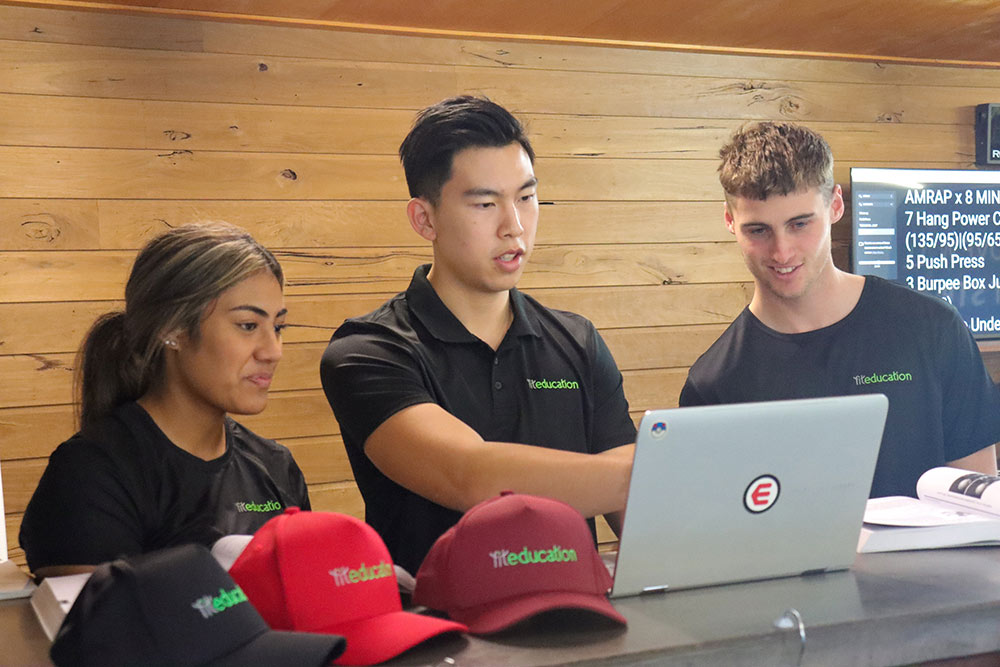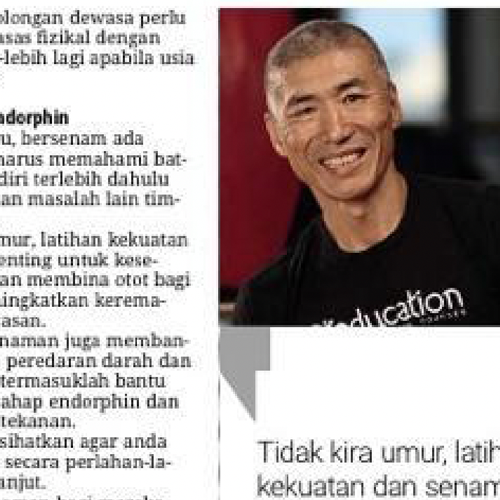Australia is known for its first-class and globally recognised education system, enabling graduates to gain a competitive edge in the job market. Combined with its booming fitness industry, which has grown about 4% per year from 2017 to 2022, complete with modern equipment and facilities as well as robust networking opportunities to leverage, this country makes for an ideal place for aspiring fitness professionals to pursue their fitness education.
However, citizens of certain countries will require visas to enter Australia to study, and Malaysians fall into this category. The process can be daunting and nerve-wrecking , and a lack of preparation or research can lead to a visa rejection.

Why are Australian visas so important?
To examine just how significant an Australian visa, be it for study or work, is for Malaysians, let’s first look at what having one can entail.
For students, an Australian student visa gives them access to prestigious universities and institutions that provide various fitness programs to meet different needs. For example, students more interested in coaching and sports development can take a sports diploma, whereas someone more inclined towards personal training can get certified as a trainer. These institutions often have distinguished faculties and can provide a dynamic learning environment. Students with visas can stay in Australia for up to five years.
For graduates who want to work in Australia, Australian visas allow individuals to join the growing fitness industry, meeting the demands for fitness professionals as a coach, personal trainers, and researchers, among many others. They will have the opportunity to grow their network among fellow fitness professionals and their clients and be up to date with the latest developments in the industry through the countless events and seminars they can participate in. Malaysians, in particular, can apply for a working holiday or skill shortage work visa.
Common reasons for visa rejections

With reports stating that over 50% of visa applications in Australia were rejected in 2022 alone, the application process can seem daunting. Thus, it is important to understand the reasons behind these rejections.
Incomplete or inaccurate documentation: Any visa application in Australia needs many supporting documents, and applicants often do not include enough information. This is the main reason why visa requests are turned down. Each visa application needs a different set of documents to back it up. For example, if you want an Australian student visa, you must provide a letter of offer for your fitness education program and proof of other necessary academic qualifications. People who don’t attach the required documents or forget to do so often have their visas rejected.
Insufficient financial proof: When someone wants an Australian student visa, the Department of Home Affairs must know they have enough money to support themselves. For some visas, you need to have a certain amount of money or income, which can be proven through documents such as bank statements indicating the amount of savings the applicants have. The visa application could be turned down if applicants fail to meet this requirement. For example, as a student, you will have to prove that you have enough funds to cover the following expenses:
- Your travel in and out of the country
- 12 months of course expenses, prorated for shorter fitness education programmes
- 12 months of living expenses, prorated for shorter stays
- Any school expenses for accompanying dependent children
Health requirement guidelines: One of the most important parts of getting an Australian student visa is meeting the health requirements. Unfortunately, these requirements may result in visa rejections, as HIV, tuberculosis, hepatitis, cancer, major heart problems, and mental illnesses are some medical conditions that can cause your visa to be rejected. Depending on the visa being filed for, the applicant’s family members may also have to meet the health requirements, even if they are not moving to Australia. A health waiver can be given in some special situations, which can be granted by consulting an immigration lawyer.

Tips for a successful visa application
To ensure that you have a seamless visa application process to study fitness in Australia, here are some guidelines you can follow:
- Ensure you have all the papers you need to support your visa application, such as financial proof, university admissions letter, qualifications, police clearances, etc.
- Check and recheck your visa application to ensure you answered all the questions properly. Check for mistakes. Even small ones, like a wrong visa number or date of birth, can cause you to be turned away at the border.
- Ensure you have enough money for the first few months in Australia. The Department of Home Affairs recommends AUD 5,000 as enough money for your stay in Australia and/or to buy a ticket to leave Australia. You must show proof of this when you apply for your visa.
- Don’t be late with your health check before you apply for a visa. Getting this insurance as soon as possible is best so you don’t have to rush or wait for your application to be processed.
In a nutshell
For Malaysians, going to Australia to build your fitness career or obtain a fitness education can be exciting. But to get an Australian student visa, you must plan carefully and pay close attention to every detail to minimise the chances of getting your application rejected. By understanding the significance of Australian visas and some of the common roadblocks to getting one and making sufficient preparations, people who want to study fitness education or work in the fitness industry in Australia can set themselves up for a smooth and rewarding time there.




